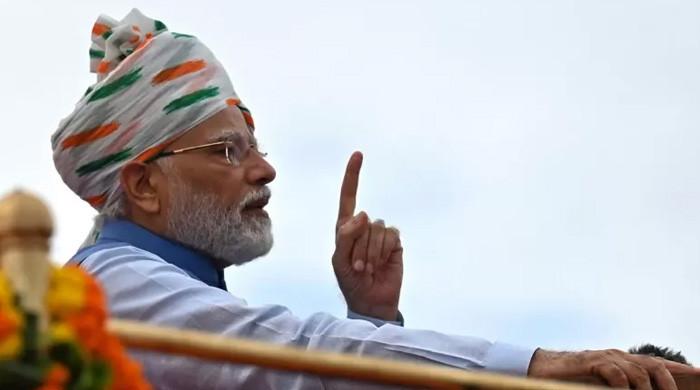Indian Prime Minister Narendra Modi’s insistence on nationwide adoption of Hindi, the main language of northern India, has drawn honor in some states that saw it as a step that would wipe out their cultural heritage.
In linguistically diverse India, the imposition of Hindi has always triggered tension among the states and the central government.
High -profile fights have recently erupted over Modi’s push for the nationwide adoption of Hindi, the language of his power base in northern India and a symbol of his campaign to unite the country around the ideology of Hindu nationalism, that New York Times Reported on Sunday.
In Maharashtra, a state in Western India, which was ruled by Modi’s Party – Bharatiya Janata -Party (BJP), was forced to withdraw a policy that required Hindi to be taught in primary schools last month.
Opposition politicians, residents and others had called the policy a violation of marathi, the region’s mother tongue, the report says.
In another state, the chief minister of Tamil Nadu has raged for several months against an educational policy pushed by the modi government to adopt Hindi, claiming it is trying to force students to learn the language.
This Southern Indian state has a history of rebellion over the efforts to make Hindi mandatory.
Tamil Nadu sued the central government in May after it said it would withhold education until the state implemented the policy.
“It is common sense to push any language will harm the national integration and unity of a linguistically diverse nation like India,” said Niranjanaradhya VP, an activist studying how education affects the development of childhood.
“It is because of this imposition that there is so much resistance from people.”
Central government officials have been careful to emphasize publicly that India’s strength lies in its linguistic diversity. When they attack any of India’s languages, their targets are English and call it a legacy of colonialism that needs to be emphasized to build a new India.
Hindi and English are India’s two official languages, and Hindi is the native language of the largest group of Indians.
The ruling BJP leaders have made the spread of Hindi a cornerstone of their overall goal of converting India into a Hindu-first nation, and Modi-Government officials are increasingly referring to the country as Bharat, a name derived from Sanskrit.
Modi government has steadily promoted Hindi all over the nation by naming new public programs, such as for education, agriculture or development, in the language.
Tamil Nadu has refused to comply with this policy that the state government claims is a way of forcing Hindia’s teaching.
Its supreme leader, MK Stalin, has said that his state does not need Hindi because it has gained teaching in high reading skills in Tamil and English.
Tamil Nadu and other southern states care that the imposition of Hindi would annihilate their cultural heritage, including a family of language with Dravidian, rather than Sanskrit, roots.
In Maharashtra, the problem started in April, after Chief Minister Devera Fadnavis issued a dictation that Hindi would be mandatory in primary schools, in addition to English and marathi.
Blowback was huge. Sushil Kedia, an investor, was rolled after posting on social media, which he had struggled to learn marathi despite being a long -time resident of the state. Vandal’s also attacked his offices. Kedia later apologized for her comments.
When the government’s efforts to push Hindi create indignation, they often also create political opportunities.
The battle for marathi reunited two prominent state politicians, alienated cousins who fell out almost two decades ago and created their own political parties, said New report.
The two marked their triumph over the weekend on a festive rally.
The Thackeray Genforeningen comes in front of important municipal elections and after Maharashtra’s state elections in 2024, where both Thackeray-led parties suffered major losses.
On Saturday, Stalin, Tamil Nadu leader, congratulated the two with their “victory”. In a post on X, he said the campaign to reject the introduction of Hindi had “exceeded state boundaries”.



